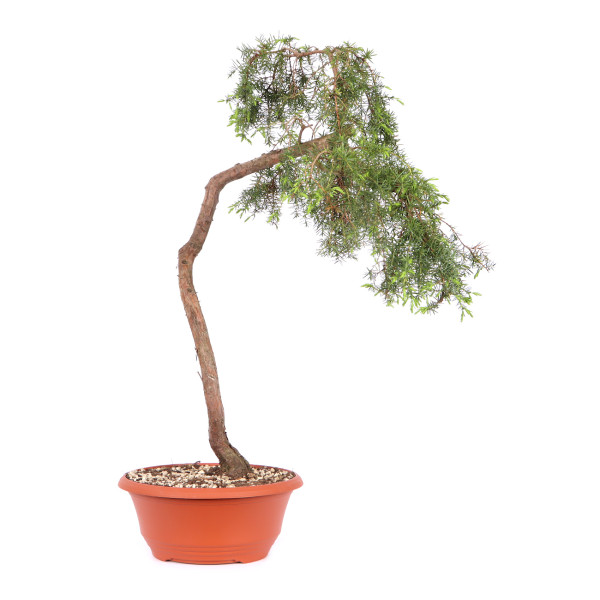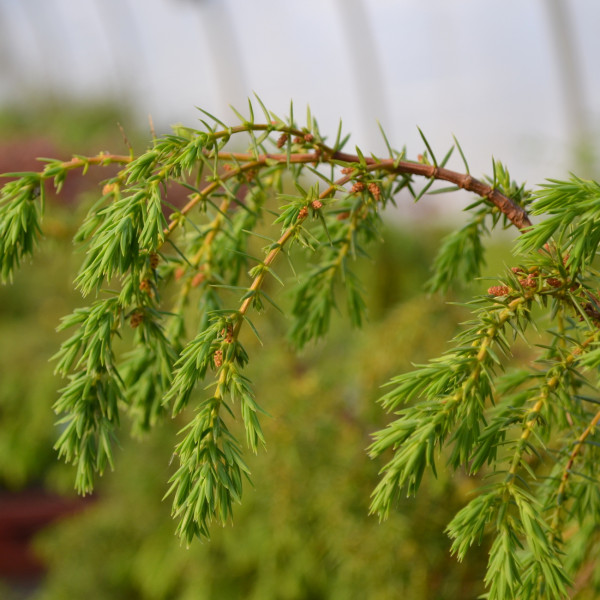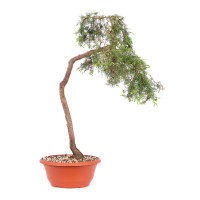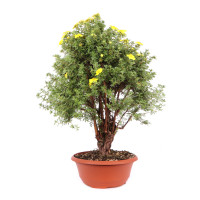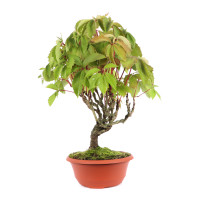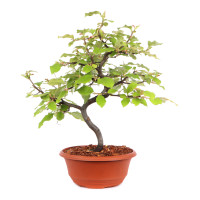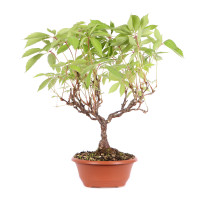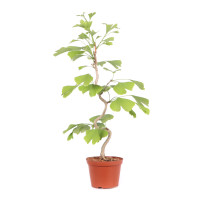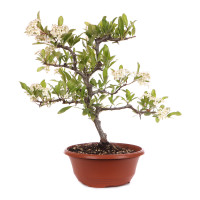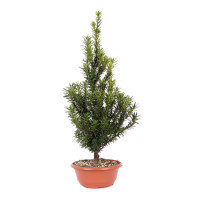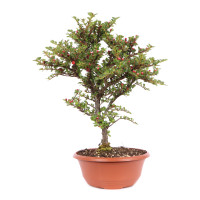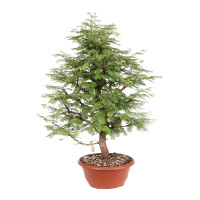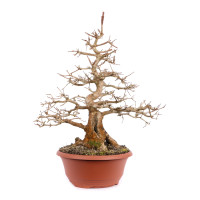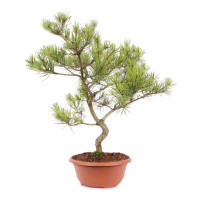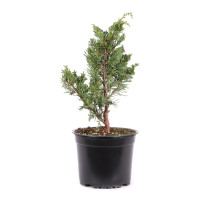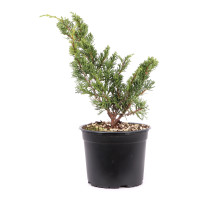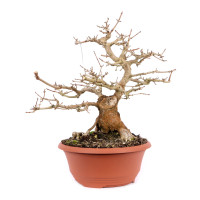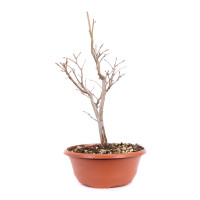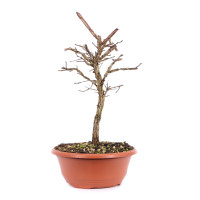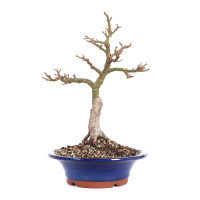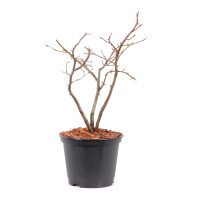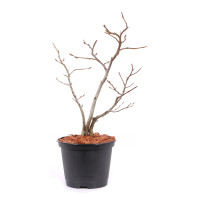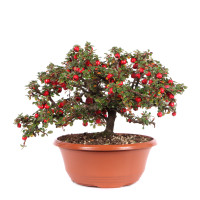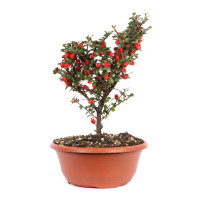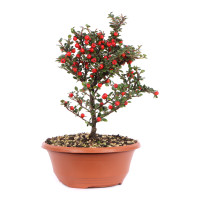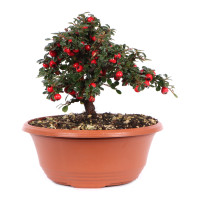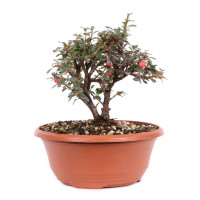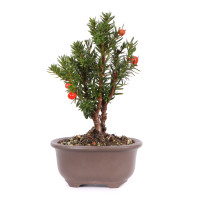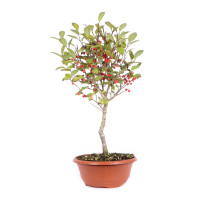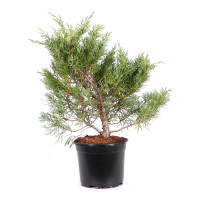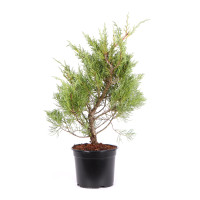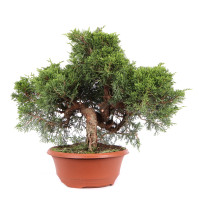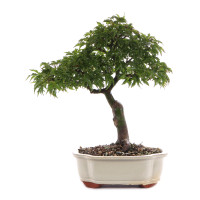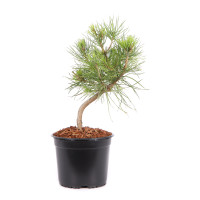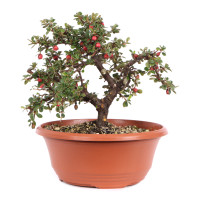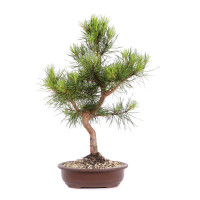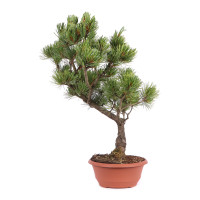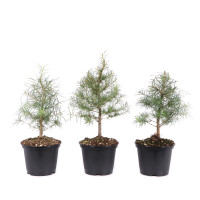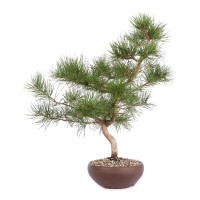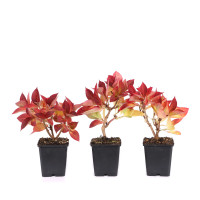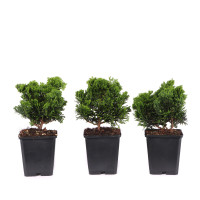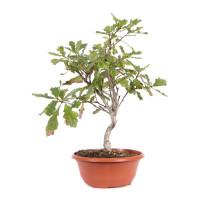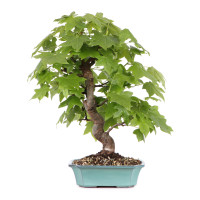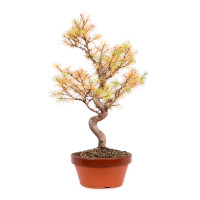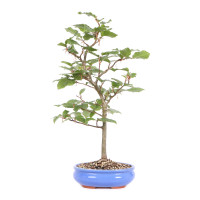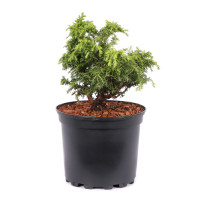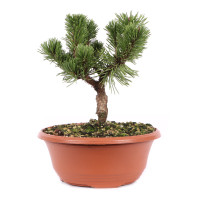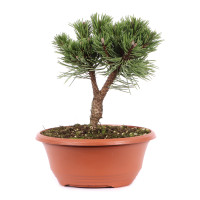- Order number: 1120-P-24-1265
- Height: 65 cm (incl. pot)
- Foliage: evergreen
- Bonsai Pot: plastic pot
- Age: ca. 23 years
- Origin: Germany
Juniperus communis ‘Horstmann‘– Common Juniper ‘Horstmann‘
General:
The common juniper populates the largest area of all conifers. It is common in large parts of the entire northern hemisphere. It is also at home in Europe. Compared to other tree species, it is very weak in competition and therefore colonizes extreme locations where other trees cannot grow. In Germany, for example, it can be found on low-nutrient, stony, dry soils on the coast and in the mountains, as well as on extensively used pastures. The juniper grows columnar or shrub-like and rarely grows larger than 10 meters. Its leaves are needle-shaped, in threes in whorls, and are bluish-green in color. The bark is gray-brown and cracked with age. The wood is very tough, flexible and at the same time durable. It was therefore often used for woodturning work.
Care as a bonsai:
The common juniper is in no way inferior to the temple juniper from Japan. The fine, evergreen foliage, the flexibility of the wood and the general robustness make the plants an ideal starting material for bonsai design. The properties mentioned offer almost unlimited possibilities to rearrange the green of the plant and to design interesting areas of dead wood. The juniper forgives massive interventions here as long as you give it time to regenerate. The only difficulty in creating is the stinging foliage. In addition, when larger branches are removed, the corresponding roots can die off. To avoid this, such branches should be removed gradually. The new shoot is regularly plucked back and the crown thinned. Older needles can also be removed year-round to encourage the formation of new buds. The juniper prefers a sunny spot in summer and should be protected in winter so that it does not dry out too much. However, sub-zero temperatures actually do not harm it.
Special features of the variety:
This juniper ‘Horstmann‘ species selected by G. Horstmann not only looks very similar to the Japanese temple juniper, but it also has similar growth characteristics. In the wild, this juniper grows with arching, overhanging, irregularly arranged branches. It can also be used for all possible designs.

